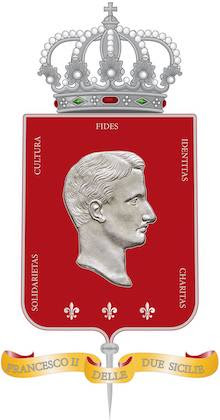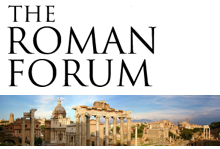Original Records VS. Extracts
By Angelo Coniglio
More and more descendants of Sicilian and Italian immigrants who came to the United States in the Great Migration of the late 19th – early 20th century are researching their roots. In addition to the standard subscription websites like www.Ancestry.com, and free websites like www.rootsweb.com and www.familysearch.org, amateur researchers are reaching out to social media sites like www.Linkedin.com and www.facebook.com. These venues have a variety of specialized ‘groups’ which cater to virtually every interest, including genealogical research.
 Facebook, for example, has groups for ‘Sicilian and Aeolian Islands Genealogy’, ‘Italian Genealogical Records’, ‘Genealogy! Just ask!’, ‘RootsWeb Genealogists’, and more, even some Sicilian or Italian-language groups like ‘Amici della genealogia’. The groups can be ‘open’ for all Facebook users, or ‘closed’, requiring you to request admission. The usual use of these groups is for a member to post virtually any question about his or her family, from the general, listing family surnames and asking to contact others researching the same names; to the specific, about an ancestor, born on a specific date, etc.; to posting of original records, and asking for help in translating the documents.
Facebook, for example, has groups for ‘Sicilian and Aeolian Islands Genealogy’, ‘Italian Genealogical Records’, ‘Genealogy! Just ask!’, ‘RootsWeb Genealogists’, and more, even some Sicilian or Italian-language groups like ‘Amici della genealogia’. The groups can be ‘open’ for all Facebook users, or ‘closed’, requiring you to request admission. The usual use of these groups is for a member to post virtually any question about his or her family, from the general, listing family surnames and asking to contact others researching the same names; to the specific, about an ancestor, born on a specific date, etc.; to posting of original records, and asking for help in translating the documents.
The responses are varied, but unlike many ‘social media’ conversations, are usually respectful, helpful and to the point. Others who have had the same problem may respond; experienced amateur and professional genealogists may answer with valuable information or suggestions; other users may send you private messages that only you and they may see, or make arrangements to contact you by email. Professionals may offer their paid services, but these are usually restrained by the group administrators, not generally ‘pushy’, and there is no obligation to use them.
A common type of post in these groups starts with “I have my ancestor’s birth certificate, but . . .” or, “I want to get my grandfather’s birth certificate.”
In the 1800s or early 1900s ‘certificates’ were not issued to the citizens involved in civil registrations by Sicilian or Italian towns. Records of birth, marriage, and death were written in registers kept in the towns permanently. Many of these records still exist and have been microfimed by the Mormon church and made available for rental or free on-line searches. Otherwise, the original records may still be on a dusty shelf in the town offices. I have previously described the wealth of detail contained in these records: names, birth dates, occupations and addresses of the principals and/or their parents and spouses; witnesses to the registrations; the officials involved; and signatures of literate ancestors.
When a person needed proof of a birth, marriage or death, he would request it from the town and receive, not a photocopy of the detailed original records, but an ‘Estratto Certificato’ (certified extract) of the original. In the case of birth records, for example, the extract would give only the name and birth date of the child, the town where it was born, and the names of the parents. It would leave out the age, occupation and address of the father (or his father) and the names of any witnesses (often family members) that were listed on the original. If the father had signed the original, the extract obviously could not include that signature; and so on. Because of the word ‘certificato’ in the extracts, many folks quite erroneously call them‘birth cerificates’, ‘marriage certificates’, etc.
However, if you’re looking for the most information available, your search should be for the image of the original Atto di Nascita, Matrimonio or Morte (record of birth, marriage or death). And if you’re paying a genealogist to obtain the record for you, be sure you know whether you’ll be getting (and paying for) the original record, or just an extract. Another option is to obtain a ‘copia integrale’, or verbatim copy of the original record. This will be a word-by-word transcription of the original, lacking only any signatures of declarants or witnesses. As a copy, the copia integrale may also contain transcription errors.
Coniglio is the author of the book The Lady of the Wheel, inspired by his Sicilian research. Order the paperback or the Kindle version at http://bit.ly/SicilianStory Coniglio’s web page at http://bit.ly/AFCGen has helpful hints on genealogic research. If you have genealogy questions, or would like him to lecture to your club or group, e-mail him at genealogytips@aol.com









